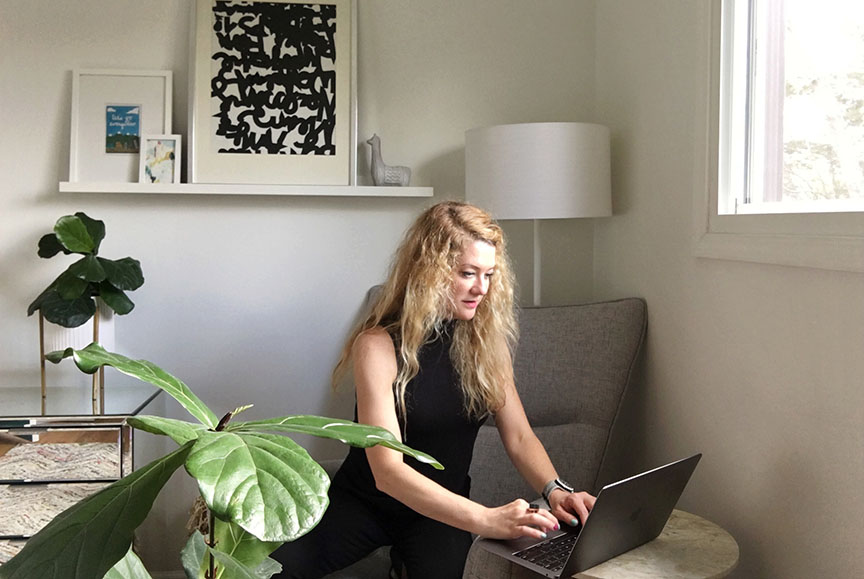
How to get a new job after a layoff
Is the job market tight? Hell yes — it rivals with the Great Depression. But are opportunities still out there for the taking and making? Yes and yes.
I’m not going to fluff you up with rainbows and unicorns right now. You already know that times are unprecedentedly tough.
I’m here to say that I firmly believe that the actions you take right now will make a critical impact on your career in the years to come. I recognize that some industries, like restaurants and coworking spaces, are suffering more setbacks than others like, say, toilet paper manufacturers. Just about everyone’s hunkering down, but why not view the slowdown as an opportunity to step outside your comfort zone, explore new ways of thinking, and make a fresh start?
If you’re unemployed, underemployed, or worried about losing your job, I feel your pain, grief, and anxiety. I was laid off from my full-time job in tech in early March 2020, just before the Coronavirus hit the U.S. hard. It was one of my favorite jobs of my 20-year career, an invaluable experience working for an all-remote company whose values were rooted in inclusivity.
After crying for 10 minutes and commiserating in my journal, I pushed up my sleeves and applied for jobs in earnest. Within a week, I picked up several freelance gigs, and within a month, I landed a new full-time role with a more prestigious title.
Luckily — and I mean this sincerely — this was not my first layoff. During the recession of 2009, I was let go from the company I founded. But you know what? I’m glad I went through that major life shift. After wallowing in sadness for several months, I bucked up, buckled down, reinvented myself, and came out stronger and wiser — with two jobs and three times the pay than before.
So, how should you approach finding new work opportunities during the COVID-19 pandemic? I’m here to share tactics that led me to successful results about 10 times faster than when I was laid off in 2009. I owe a lot of these tips and insights to Bernie Frazier, a career coach and talent acquisition expert who helped me get back on my feet. Bernie has two decades of experience recruiting and hiring the best of the best for a number of companies, and she’s seen it all. Here are eight job-hunting tips that hold up even during tough times.
1. Strap yourself in for a roller-coaster ride
Welcome to your new normal. Everyone — and I mean everyone — is going through these tumultuous times in some shape or form. Embrace the suck and lean into the fact that we’re dealing with a number of unknowns.
Take a breath (er, many breaths), prepare for a string of changes you can’t quite fathom, and make like an ultimate challenge-overcomer in this complicated world we’re living in. Those who get creative and rise to the challenge will come out on top. That’s how we humans survive and thrive.
If you’re an avid Medium reader like me, you’ve probably read advice about being flexible and embracing change. Well, it’s true. Recession aside, in order to thrive in today’s economy — whether it’s riding high or extremely low — you must be nimble and able to shift gears at any moment.
2. Look deeper and around corners for opportunities
We quickly shifted from an employees’ market to a hiring managers’ market. If you’re hunting for a new job, you’ll likely need to put forth more effort because competition is greater. Prepare to work smarter and harder.
In addition to looking for jobs in your usual hotspots — such as LinkedIn, Glassdoor, Indeed, and your specific industry search engines — seek out new sites, newsletters, and private industry groups you’ve never heard of. Also seek out emergency funds and grants established for artists, freelancers, and others affected by the virus’ effects on the economy. Opportunities are out there — you just have to ask around and find them.
Case in point: when I was recently laid off, my big-hearted former boss invited me to join a private Facebook group specifically for our industry (content marketing). Therein, I was immediately connected to private freelance gigs and landed interviews with hiring managers in less than a week.
Another example: I’m a member of The Wing, a coworking space for women. Though members cannot currently set foot in any of the physical spaces, we’re all tapped into the organization’s private job boards that list global opportunities.
3. Network like a boss even if you don’t like networking
A few days after I was laid off, I posted this simple message on LinkedIn: “Need a content marketing leader? I’m available for hire.” I didn’t even mention that I was laid off. Within a week, I heard from several folks who needed help producing content.
Looking back to 2009, I don’t think I put myself out there enough. Granted, LinkedIn was not what it is now, but I could have used Facebook, email, and other routes to spread the word about my skills and services.
Bernie has a similar story from the 2009 recession — but with speedier results. She was laid off on September 30, 2009, and three weeks later, she got a phone call from a recruiter at a hospital, and shortly thereafter a call from another recruiter from a prominent financial investment company. Bernie took the hospital position and turned down the second opportunity. She says it felt good when her new boss said, “I knew I had to meet you. I received your resume from three people.” How did this happen? Bernie had spent the previous 10 years helping others find jobs. During those 10 years, as a recruiter, she consistently reached out to her network to say “Hi, how are you and how can I help you?” When it came time to ask her network to spread the word that she was seeking work herself, they were more than happy to forward her resume to people in their respective networks.
If you’re an introvert and feel weird about promoting yourself, I understand. I’m the same way. But you have to do it anyway. If it helps, don’t think of it as networking — think of it as checking in with people to make sure they’re OK.
For many of us, now is the time to hunker down in your home for safety reasons. It’s also a ripe time to network like nobody’s business on channels that don’t spread viruses: the Internet, phone, Zoom, etc. You don’t necessarily have to call your friends and say, “Woe is me. I’m unemployed.” Instead, ask them how they’re doing and then tell them about the kinds of work you’re seeking.
I’m enjoying this peculiar moment, because suddenly our regularly scheduled plans have been canceled and we’re deliberately organizing new ways to connect with people we haven’t talked with in a long time. I also love that many people want to help in whatever way they can.
4. Crank up your personal brand game
You’ve heard the advice before, and it’s so true. Your personal brand — how you present yourself to the world — is everything. How you present yourself on the Internet and on your resume is often the first impression you’ll make with a recruiter before you meet screen to screen.
Though I’ve helped build brands for a number of companies, I needed help revising my resume. We all need an outside perspective. Thankfully, Bernie’s reviewed thousands of resumes and quickly identified a few tweaks I needed to make.
Did you know that recruiters spend an average of seven seconds reading your resume? Because quickly getting to the point is the point, Bernie suggests prioritizing key words and messaging that spotlights your top talents. Make sure those priority selling points are placed in the top one-third of your resume. (I took Bernie’s advice and added short bullets for new “Career Highlights” and “Key Competencies” sections to my resume.)
Ask someone in ranks above you — or, if possible an experienced recruiter or career coach — to review your resume, LinkedIn profile, or whatever materials are essential in your field. In my line of work, my resume is just as important as the quality of my portfolio and LinkedIn profile. For others, it might be all about your personal website, CV, IMDB profile, Instagram, etc.
5. Corral your karma
Whether you believe in the philosophy of what goes around comes around, I’ve heard countless stories about how helping others leads to positive results. Bernie has a karmic story about a woman she met in a hotel sauna hot tub while making small talk. At the time, Bernie worked in recruiting and the woman (let’s call her Jan) also was an HR professional looking for a new opportunity. Bernie never mentioned that she was a recruiter, but as they both left the sauna, Bernie handed Jan her business card and said, “Give me a call.” Before Bernie had a chance to set up an interview with her, Jan had already switched employers — to St. Louis Children’s Hospital, working for an HR processing team.
“After I sent out my email blast to my network about being laid off on September 30, Jan was the one who reached out to me three weeks later to tell me about the job that I ultimately got from the hospital,” Bernie says. “One year after I started, I hired her onto my recruiting team. One year after that, I promoted her.”
6. Consider a pivot
Perhaps you’re a furloughed worker who can’t physically go into work, and you’ve always wanted to launch a Youtube show. Maybe you’ve been stuck in a desk job that doesn’t make your heart sing, and you want to put your maker skills to good use by selling your own masks. I’m not necessarily suggesting that you quit your day job — you might want to hang on to that while you test out new waters.
The moral of the story is: Change can be scary, but change can be good. This could be your moment.
7. Get organized, manage your money, and do whatever makes you feel confident
I know it’s hard not to stew about the doom and gloom, but I’m going to say it anyway: Don’t obsess over the negatives. We don’t have time for a downward spiral. Accept the fact that these are stressful times, and be grateful that you have what you have.
What gets you into a focused, job-seeking headspace? For me, it’s about managing stress with meditation and exercise, limiting my intake of pandemic news stories to an hour a day, getting my finances in order, talking with friends on Zoom, and taking mini spring-cleaning breaks.
Do whatever you need to do to avoid falling into depression.
8. Kill it during the interview
This one’s obvious, but I just want to reiterate that with greater competition, hiring managers can be pickier about the people they choose. Over-prepare, practice answering likely interview questions, and check in with former colleagues to remind you about your strengths.
Go beyond the position description. Study any relevant information about the company you can get your hands on before the interview. Do some Googling to see if the hiring manager has done public speaking or written thought leadership about your industry. Study the competition and what they’re doing during the pandemic.
Practice answering potential interview questions and prepare your own list of thoughtful questions to ask the interviewee. Here are some good ones to help you prepare.
What do you think? Share your experience about job hunting in Comments below.
Read Live from my bedroom on losing my job during the Coronavirus pandemic
Sorry, the comment form is closed at this time.




Matthew A McDermott
Good advice! I am glad you quickly landed on your feet. Best of luck as we all moved forward in this new landscape.
Amy Cuevas Schroeder
Hi Matthew! Great to hear from you.